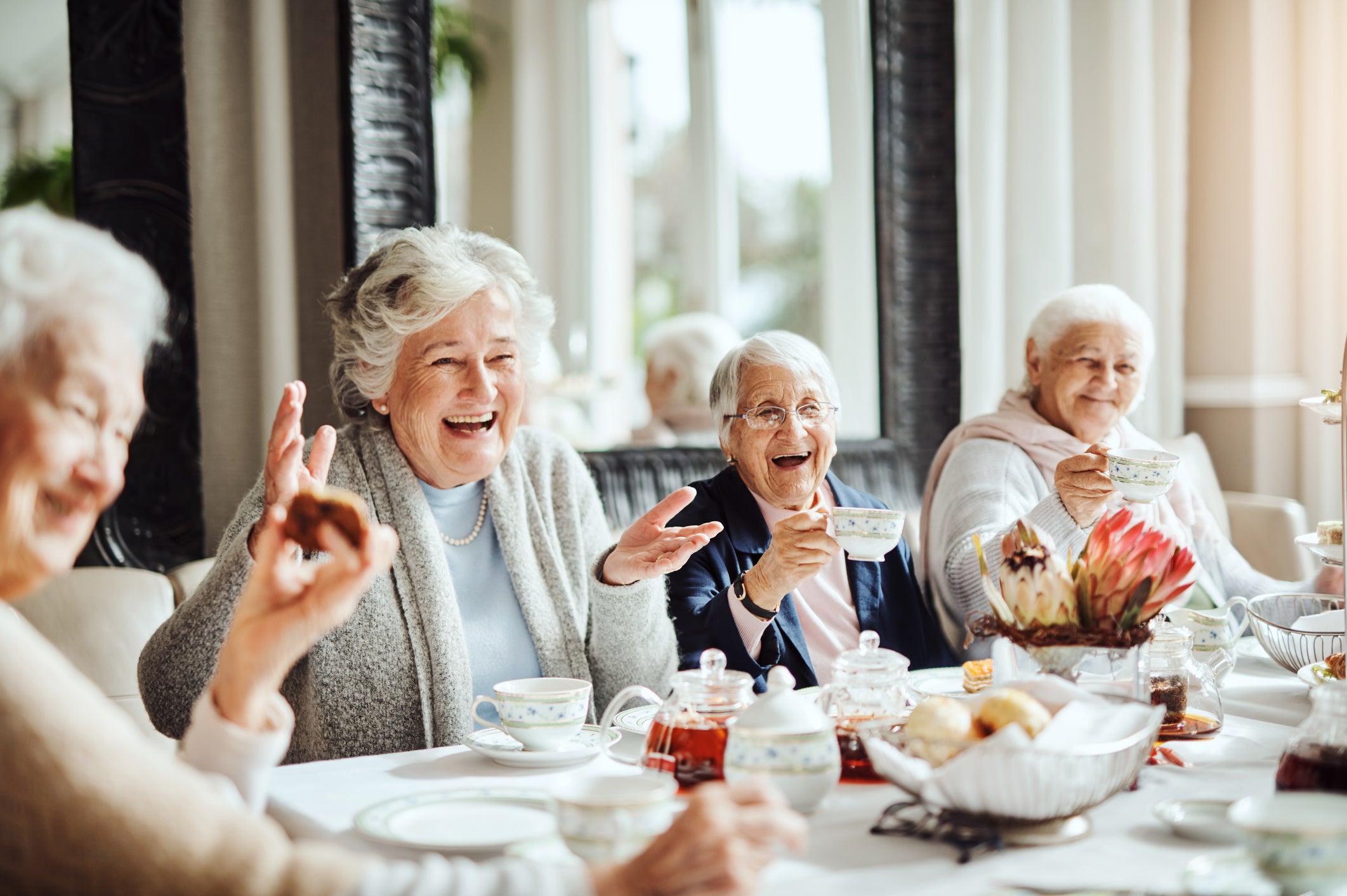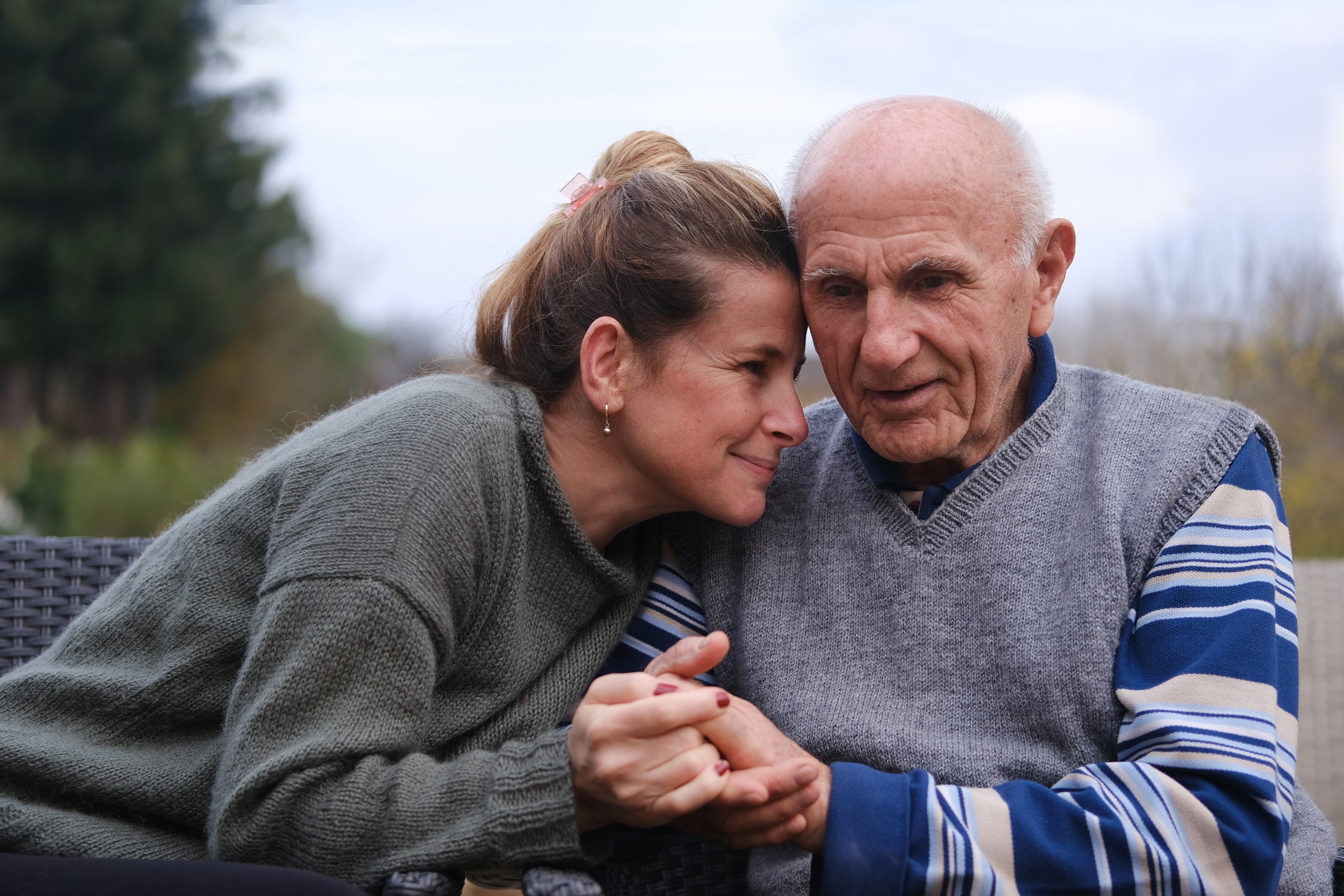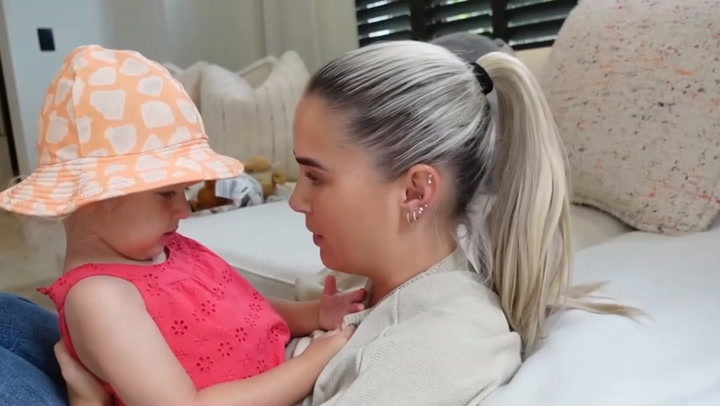Meet the childfree communities planning for a future without kids

I live alone – I have no family, it’s just me – and I have nightmares about dying at home unexpectedly and nobody finding me for four years! That scares me…” Some of the other members of tonight’s meeting nod sombrely at these words – the woman speaking is far from alone in this primal fear.
Her comment has followed a lively discussion about what happens if you drop dead in the street – specifically, whether the police will be able to identify you if there are no family members to do it. “I think it would be so easy if we all had our NHS numbers tattooed on us,” another woman muses, and the group laughs along at the thought. Someone else offers a more commonsense approach: she pre-emptively wears an “SOS” locket bracelet containing her name, national insurance number and contact details for her trusted solicitor, who has access to her funeral plan and will.
This exchange is typical of an Ageing Without Children (Awoc) meeting – a safe space that enables the voicing of serious anxieties mixed in with a good dose of humour and real-world advice. First set up in 2014, the charity has three main aims: to create peer-led groups of people who are facing old age without children to provide care or advocate for them; to offer practical information for these communities; and to lobby government, both locally and nationally, to factor this ever-growing demographic into health and social care planning.
It’s a broad church. The group includes both those who are childfree by choice and those who are involuntarily childless due to infertility or circumstance. As well as people who have never had kids, those whose children have died are also welcome, alongside those whose adult children have disabilities such as Down syndrome (and therefore aren’t in a position to care for elderly parents), and those who are estranged from their children. “It’s an inclusive banner,” explains Awoc national co-chair Jenny Collieson. “We’ve also got quite a few LGBTQ+ people because, while things have changed dramatically for younger people in terms of gay marriage and having kids, for people who are 65 plus, they often weren’t able to have children – or they’ve sometimes been ostracised by their previous families.”
This evening’s particular convening of the East Kent branch of Awoc, taking place over Zoom, is all about death. Chair Penny Shepherd has created a comprehensive slideshow, tackling identification, how the authorities can find your last will and testament, and who to appoint as the executor of your estate. The 10 attendees are all women – a common theme in most existing childfree and childless community spaces, perhaps indicative of the fact that anything family-related is still inexplicably deemed a “women’s issue”. Aged in their sixties and upwards, they are also incredibly engaged, asking perceptive questions and sharing tips and experiences.
People come to the meetings for the information but stay for the community, Shepherd has observed. “What people say over and over is that, yes, the information at the meetings is useful,” she says, “but, more importantly, they say: ‘I thought I was the only one in the world in this situation, and now I see I’m not. There’s lots of us.’”
Indeed, the number of people in the UK without children is steadily increasing. The proportion of women who have never had children in England and Wales has leapt from 15 per cent of those in their seventies to 23 per cent of those in their fifties. By 2032, there is projected to be an 80 per cent increase in the number of single, childless, older people.

The UK is among numerous countries that have an ageing population, the result of increased longevity plus a declining birthrate. This demographic shift will have – and is already having – a significant impact on social care for the elderly. Currently, family members provide 92 per cent of all informal (unpaid) care in the UK. This could be anything from doing a weekly shop for a parent to driving them to hospital appointments and making healthcare decisions on their behalf if they become incapacitated. “But what happens if you get older and you don’t have any family support?” says Collieson. “Despite our changing population, that’s still very baked into our health and social care system – that everyone’s got access to family carers.”
In fact, those without children are far more likely to end up providing informal care for their own elderly parents than people who’ve had a family. This often prompts what Collieson calls a “lightbulb moment”: “Someone in their fifties or sixties suddenly realises when they’re trying to secure support for their 90-year-old dad that it’s really challenging. They wonder who is going to be there as the advocate for them if they don’t have family.”
Among the Awoc community, there are common fears around advocacy, particularly in the event that someone develops dementia without having a trusted person to make decisions in their best interests. Even for those with expansive networks of friends, these tend to be in the same age bracket. “You can have a lot of friends in your seventies and eighties but they tend to die off – and other people your age become more incapacitated themselves,” Collieson explains.
It’s still very baked into our health and social care system that everyone’s got access to family carers
Jenny Collieson, Ageing Without Children
Despite this lack of informal care becoming a more pressing problem, little is being done at either a local or national level to factor it into policy. The birthrate “crisis” has shot to the top of the political agenda in countries the world over, with the UK’s minister for women and equalities, Bridget Phillipson, vocally encouraging people to have more babies and offering the enticement of better parental leave and family-friendly policies. And yet, almost no conversation is being had around what the baby deficit will mean for already creaking care systems later down the line.
This is, in part, because the decision not to have children remains highly stigmatised in pro-natalist societies, argues Zoë Noble – particularly for women. Noble founded We Are Childfree, a platform supporting and connecting people who don’t have biological children, in 2017. “I realised how powerful it is to have communities, to see that you’re not alone,” she says. “We want this to be a place where people can connect with people all over the world. No matter where you live, you should be able to find someone who could be your support system.”
Yet the very existence of this movement, which now has 90,000 followers across social media platforms and a 400-strong private group for members, has proven controversial. “We don’t know if we will be able to be on social media forever, because we have our posts removed, we have content that we share taken down,” says Noble. “Anything to do with reproductive rights can be very targeted by [Facebook, Instagram and WhatsApp owner] Meta.” And reproductive rights are an essential part of the childfree conversation – “because we cannot be childfree unless we have access to contraceptives and bodily autonomy”, she adds. “There is this horrible feeling that we are being targeted more and more.”

Sarah Carpenter, an artist, researcher and director of Folkestone-based community interest company Fourth Wall, believes we aren’t having conversations about how to better care for those without children in old age because we aren’t having conversations about old age, full stop. “It’s to do with the fact that we don’t talk about death, so we don’t prepare for being elderly,” she says. “It’s still very taboo – the idea of being vulnerable and needing help and care. It’s seen as weakness.” Even though it’s evident that everyone will get old and/or die, somehow nobody really thinks it’s going to happen to them personally.
Now 42, Carpenter had a hysterectomy two years ago after a lifetime of severe endometriosis. It forced her to start thinking about the issue of ageing without family support from a relatively young age. She and another childfree friend began joking about starting a commune together – but what started as a tongue-in-cheek suggestion has galvanised into something more concrete.
“I’ve started having more in-depth conversations with people about what communal living might look like,” she says. “I’m teetering on the edge at the moment, but the first step is to have these conversations with people who have similar ethics and values and who would want to work together – thinking about the different skillsets people could contribute.”
There are plenty of challenges – modern life in consumerist societies is set up around hyper-individualisation, plus communal living is inherently “messy” when it comes to decision-making by committee, posits Carpenter – but that’s not to say it can’t be done. In fact, such arrangements are already happening, one of the most notable being New Ground Cohousing. This group of 26 pioneering women over the age of 50 created their own community in a new, purpose-built block of flats in north London in 2017. “As an alternative to living alone, we have friendly, helpful neighbours,” says its website.
I’ve started having more in-depth conversations with people about what communal living might look like
Sarah Carpenter, Fourth Wall
The project received a huge amount of attention and has been inundated with requests to join since the launch (it is not currently accepting applications). The group aims to be as helpful as possible to others wanting to set up similar schemes, saying: “The senior cohousing community could enrich the lives of many, and reduce pressures on health and care services, if local authorities, planners, policy makers and housing developers helped to remove the many obstacles society puts in its way.”
Such schemes are lauded by When I Get Old (Wigo), an organisation lobbying for radical change in a care system it believes is no longer fit for purpose. While care homes are frequently ruinously expensive – sometimes costing more than £1,500 a week – and can still rob residents of autonomy and dignity due to a dearth of funding and quality staff, there are “glorious exceptions” to this model, says Wigo. These include cohousing arrangements, community micro-providers who give care to small numbers of locals in their neighbourhood, and home-share programmes in which older people with a spare room are matched with younger people willing to offer help and companionship in exchange for accommodation. However, such options are, at present, far from mainstream.
In the meantime, small changes could make a big difference. Awoc is lobbying for the eradication of the wording “next of kin” on hospital forms – the default (and incorrect) assumption being that everyone has family members. It also believes in creating better advocacy services for those without family to speak and act on their behalf. And later-life planning – such as that explored at the East Kent meeting – is another vital tool that anyone could benefit from, covering everything from organising power of attorney to downsizing before things reach crisis point. It’s especially pertinent for those who can’t rely on adult children to sort out their affairs.

Alongside Awoc and We Are Childfree, numerous communities have sprung up to connect and support the increasing number of people living outside traditional familial structures. There are Facebook groups such as Solo Sisters (“to support and bring together women who do not have children and may or may not have any other family”) and Childfree Living UK forum (“We’re childfree by choice and we love it!”); online forum Childless Collective (aimed at women and nonbinary people who are permanently childless not by choice); and regular in-person events all over the UK listed on Meetup.
Gateway Women, an online community for childless women set up in 2012 by Jody Day, author of Living the Life Unexpected: How to Find Hope, Meaning and a Fulfilling Future Without Children, has now evolved into “Childless Elderwomen”. The group’s regular webinars have covered topics such as “Solo Elderhood: ageing without children or partners” and “Caring for caregivers – and challenging the ‘default caregiver’ assumption”.
It’s not that people who don’t have children are demanding “special treatment”, as Collieson puts it: “We’re just saying, in a very ageist society where older people are often made to feel invisible as it is, people ageing without family are even more invisible.”
All any of us really wants is to be seen; as this demographic continues to become ever more prominent, surely it’s high time government and policymakers finally opened their eyes.
[title_words_as_hashtags



